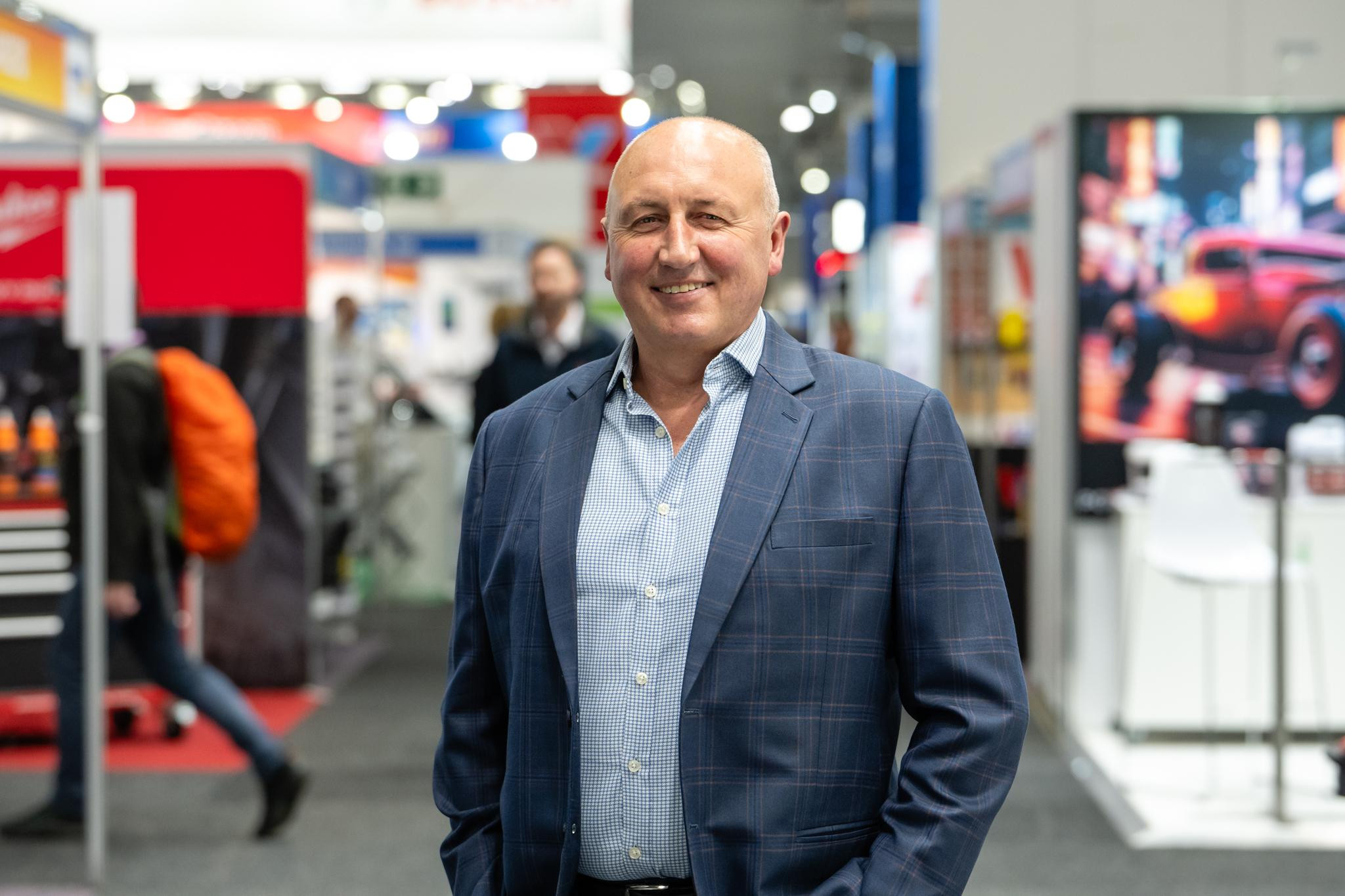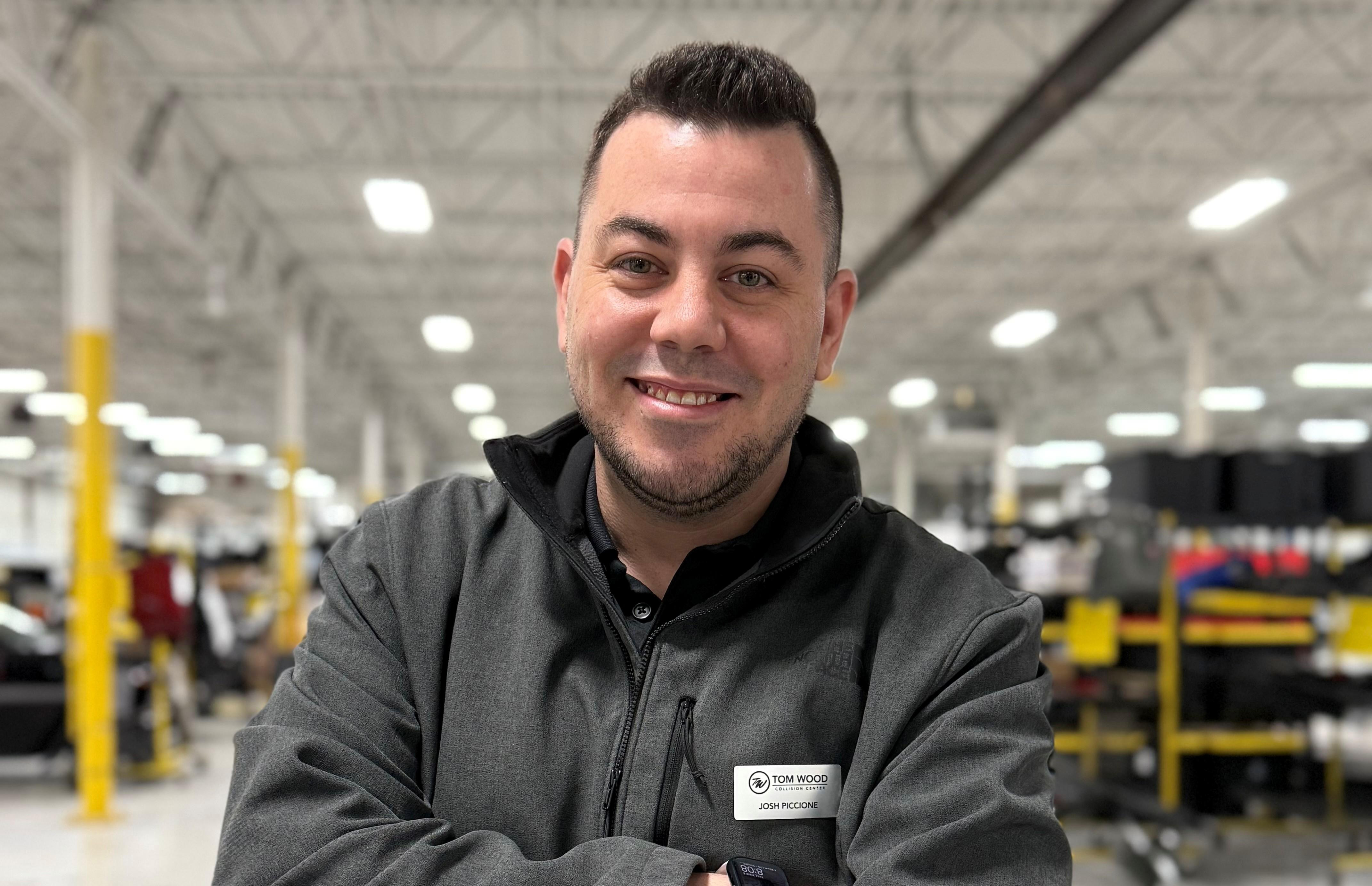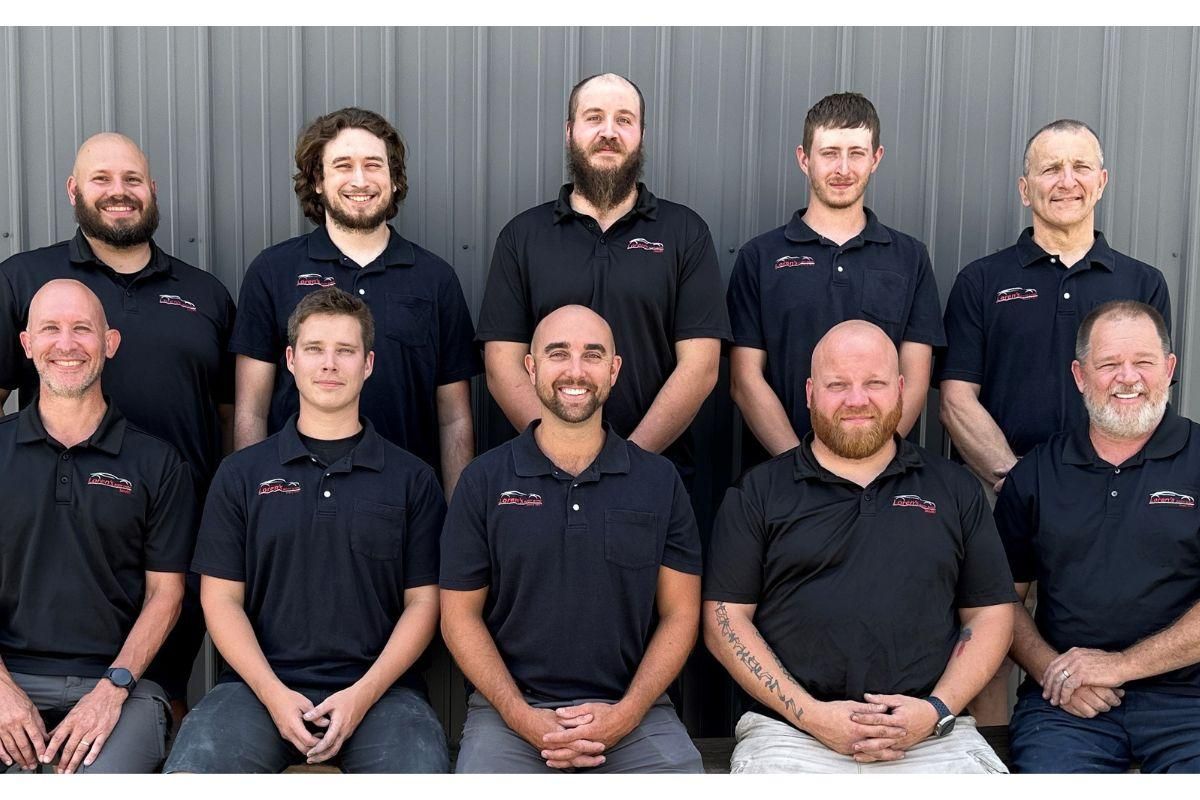Positivity Summit Part 2: Global Trends in Collision Repair, Embracing New Tech
Earlier this year, , founder of Elite Body Shop Solutions, and , founder of BodyShop Booster, teamed up to host the sixth annual virtual Positivity Summit. In the second of a four-part series, industry leaders share insight about international trends, building a successful culture and the advantages of adopting new technology.
, CEO of Business Success Global and an integral part of the International Bodyshop Industry Symposium (IBIS), shared with the Positivity Summit international trends impacting the collision industry.
When Snook began listing global trends to discuss during the Positivity Summit, he realized he had written down more than 20. “It's amazing what's going on in the world when you pause and stop and think,” he said.
The first trend he mentioned was consolidation.
“I know it has been around for a while, but we're seeing cross-border, cross-continent and cross-region consolidation, lateral as well as vertical,” he noted.
He also talked about the next wave of electrification. This includes challenges with power supply into the buildings when everyone is using it, the space where vehicles will be charged and how they will be charged.
 Robert Snook.
Robert Snook.
Regarding technology, Snook commented on the evolving on-demand digitization connectivity “online, anytime, anywhere” and the transparency that accompanies that.
He also remarked on the growth of artificial intelligence (AI) and automation. “Half the world still thinks AI is the most amazing invention ever,” he said. “The other half thinks it's scary.”
Another growing trend addressed was consumer personalization.
“Customers more and more say, ‘What about me? I don't want what he wants or she wants. I don't want to feel like an invoice,’” said Snook.
Directly related to fixing vehicles, Snook said many shops have uncertainty about supply chain issues.
He also brought up concerns over the decision to repair or replace, as well as repair volumes/repair profiles. With ADAS and other repair techniques changing how vehicles are fixed, he pointed out that some body shops have geared up for a type of repair profile that doesn't exist anymore.
“It's creating bottlenecks through the process,” he said.
With new brands coming to market, Snook acknowledged there often aren’t parts or repair methods available.
“Some are handling it better than others, but it is causing, at its worst, the member of the public to go back to the dealer where they bought the car and force them to buy the car back because they've had an accident and it's simply not repairable,” he said.
Snook also shared insight about mega casting/giga casting, which are essentially the same, and refer to a high-pressure die casting process used to produce large aluminum parts.
He said mega casting is an innovation that is possible with electrification and will affect the manufacturing process, as well as the repairability and insurability of vehicles.
“You've got to move these huge single, formed pieces of metal around the facility and get them fitted into the vehicle on the production line,” he explained. “It’s not the silver bullet. It’s just the next innovation in saving weight, reducing parts and joining processes.”
By year-end, Snook told Positivity Summit viewers, it is projected that more than 1 million vehicles will be manufactured using mega casting sections.
“That will grow significantly as electrification grows towards 2030 when it will become a normal part of car manufacturing,” he noted.
Additional trends include 3D printed parts and a focus on environmental, social governance (ESG) and sustainability.
“There's this whole insurability, repairability, sustainability triangle that people are navigating around the world,” he said.
In response, many businesses are putting an emphasis on leadership and culture.
Regarding financial shifts, Snook mentioned the impact of inflation, investment/reinvestment options, private equity and joint venture partnerships.
Snook reiterated that the industry is experiencing an immense time of change with new developments taking place.
“They are not only shaping the world, but they're shaping our industry, our business, and us as people, the way we think, act and behave,” he said.
Snook stressed the importance of collaboration.
“The best collaborators will get ahead, accelerate quicker and form the core of the winners in the industry,” he said.
Keeping informed and attending events, such as IBIS, offer the opportunity to meet collaborators and thought leaders worldwide, build relationships, gain traction and get ahead of the curve.
For those who have a vision and strategy to navigate ahead, Snook said, “…there has never been a more positive time to be in our industry.”
, owner of TAG Auto Group and TAG Calibrations and vice chair of the Society of Collision Repair Specialists (SCRS) Board of Directors, presented at the Positivity Summit strategies he has used while running multiple companies and attending industry events nationwide.
 Andy Tylka.
Andy Tylka.
Tylka attributes his success to surrounding himself with coworkers he describes as “fantastic people.”
When hiring new employees, Tylka tends to hire from outside the industry. For example, the calibration director worked at Walgreens before joining TAG Calibrations. The No. 1 trait he looks for in a new staff member is the ability to provide great customer service.
“We like to hire the leaders and the motivators first and then teach them the business,” shared Tylka.
An essential part of the company’s success is clearly understanding everyone’s role and building the company’s infrastructure. This involves identifying the responsibilities that need to be done and assigning tasks.
“You don't want a bunch of people doing the same thing,” he noted. “You want one person in charge and that's the person you talk to.”
When Tylka started running his businesses, he asked team members to write down their responsibilities.
“My list was gigantic and I knew I had to let go of things,” Tylka recalled.
The next step was dividing up the tasks. Once that was accomplished, employees knew what was expected of them.
“The best thing about it is when we had all our lanes now,” he said.
Although it was initially challenging, it built a culture where everybody knew everybody else’s place. The company’s common mantra now is “stay in your lane.”
Staff departments hold 30-minute strategic planning accountability meetings every Monday, where they share progress on their follow-up items, coach each other and constantly learn and grow.
He ensures his team and the industry clearly understand the company’s goals. For example, this year, the plan is to open three or four more body shops and 25 calibration centers.
By informing his vendors, distributors and others involved, he finds they reach out and assist where needed to help Tylka and the team fulfill their mission.
Tylka also discussed the importance of time management and the technology he uses to help manage and grow his business.
“I am absolutely obsessed with being efficient in my life,” he said.
He highly recommends that businesses learn about ChatGPT, an AI chatbot developed by OpenAI, and how helpful it can be.
“ChatGPT is perfect for every meeting you're in,” he explained. “It's going to change everything you know about the world.”
Tylka’s businesses use Microsoft Teams to hold meetings and Otter.ai transcription software to take summary notes.
“You can create a summary of every meeting you're in just by recording it and become more efficient, where now you are able to follow up on goals, make sure that everybody is doing their job and following your vision,” he shared.
, general manager of Tom Wood Collision Center in Indiana and a board member for the Indiana Auto Body Association, discussed how he and his team are embracing technology to ensure exceptional service.
 Josh Piccione.
Josh Piccione.
With vehicles advancing so quickly, Piccione noted the technology and tools available to the industry are evolving just as fast.
“Don't be late to the party,” he told Positivity Summit viewers. “Embrace it.”
One of the main technologies they use is Helios by UVEYE. The technology uses a camera system and an in-ground underbody scanner with AI computer vision to detect potential frame damage.
“We were onboarded pretty early with that system, which can be scary… but we get to reap the rewards of learning about new technology that's coming into our industry,” said Piccione.
He sees huge value in early adoption because it provides the ability to give feedback.
“Your competition will eventually have this technology too,” he noted. “You might as well be early and figure out ways to start capitalizing on return on investment (ROI).”
The shop also adopted Sherwin-Williams’ automated paint mixing system, Collision Core Pronto. When it was first brought into the shop, Piccione was concerned the painter would be skeptical and resistant about taking a new approach. However, once he was introduced to the system, the painter embraced it.
To help keep the business on track, they use the Entrepreneurial Operating System (EOS) software.
“It keeps everybody aligned with a shared vision, shared goals, shared metrics and sharing that with your team,” he said.
Early in his career, Piccione found accountability is often talked about but can be hard to deliver on.
“High performers like to be held accountable,” he shared. “People who want to be ahead of the curve want to know that the bar is being raised.”
However, he said accountability can feel like micromanagement.
“It’s probably because our human brains have been scarred at some point in our career because somebody micromanaged us and we don't want to micromanage everyone else,” he explained.
He encouraged the industry to heal that scar and celebrate small wins.
With involvement in 20 OEM certification programs at the collision center, Piccione has found some are more robust than others, which helps keep the business ahead of the curve.
He and his team have a shared passion to do things “the right way.” Part of this involves continual learning.
“I'm always going to be a student,” he shared. “I'm always ready to soak something up.”
He recommended looking for collaboration opportunities, such as getting involved in associations and workshops.
Piccione also suggested shop owners and managers watching the Positivity Summit “give people more tools to put in their toolkit.”
“Give them the things they need to support your business to move into the next chapter or the next phase and remain successful,” he advised. “I always want to empower my team and give them the sharpest, newest tools, whether that's mental sharpness or actual physical sharpness with a tool.”










